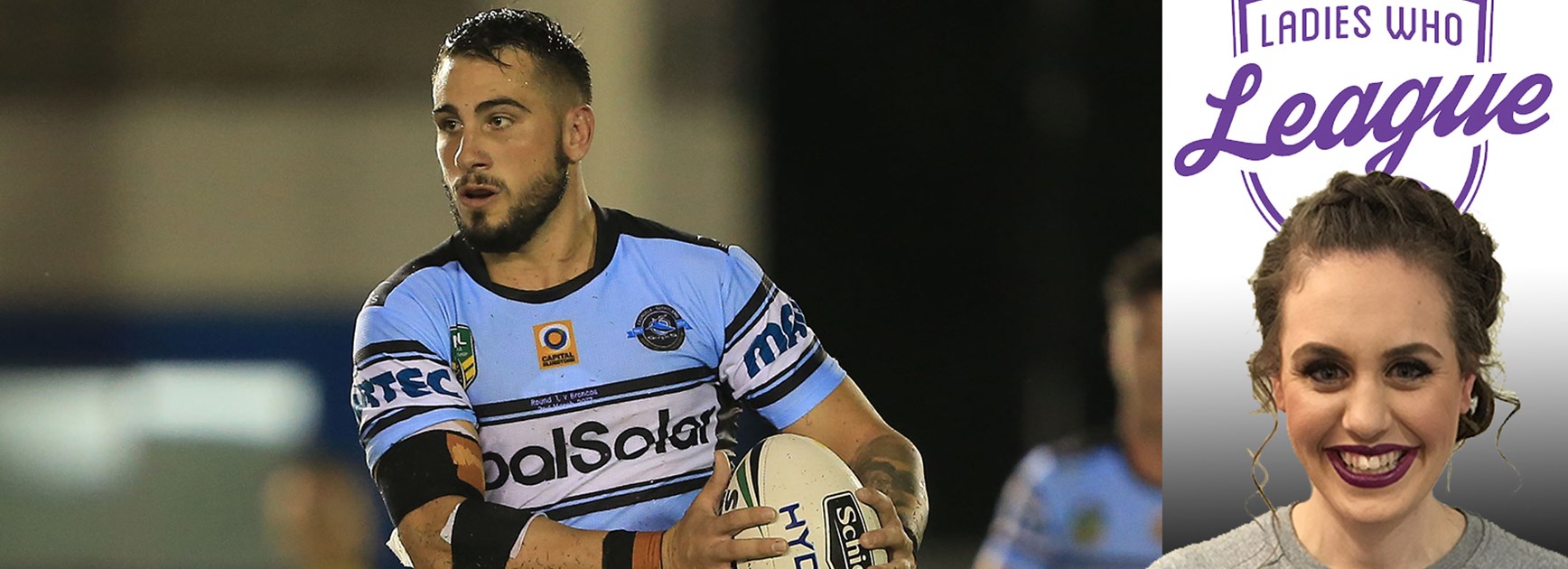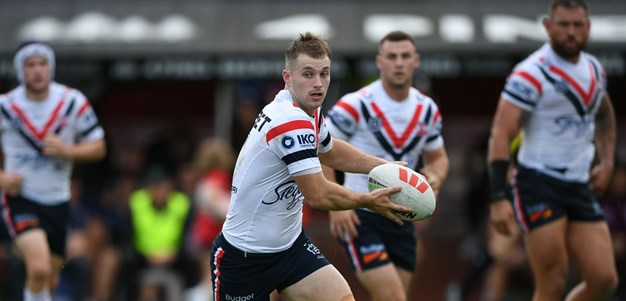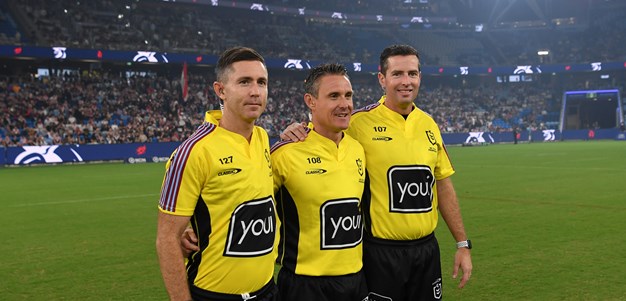
"Financially, obviously you've got to go for what the best deal is for you… most of all you've got to look after yourself, you can't sell yourself short."
These comments were made by Cronulla's Jack Bird back in 2015 and I could not agree with his sentiment more.
Back in 2015, Jack had just been named Rookie of the Year. There were several clubs chasing him at the time, including the St George Illawarra Dragons, and while his preference was to stay with the Sharks, he did make it clear during the negotiation process how important financial considerations were in making a decision about his future.
Jack ended up signing a one year contract with the Sharks in 2015 and then extended that by another year at the beginning of 2016.
I was reminded of the comments Jack made back in 2015 earlier this week when his future came under the microscope.
The 22-year-old utility is off contract with the Sharks at the end of the year and there are whispers growing louder each day that the Newcastle Knights are chasing him hard, offering him the opportunity to play in the halves with Trent Hodkinson along with a salary of $1 million per season.
Jack may be young, but he has certainly earnt my respect by being honest and confident enough to suggest that he will chase the money and making it clear to all interested clubs that he is not interested in selling himself short with his next contract.
Some fans might see Jack’s focus on money as greedy. Some might call Jack disloyal for wanting to leave the club that gave him his first shot. Some might encourage Jack to be more grateful to be playing professional sport for a living.
This fan applauds players like Jack for being honest and telling it like it really is.
In the past, I have always been frustrated when players have not had the courage to say that money is the reason why they chose one club over another. Instead, other excuses are used like 'that club didn't make me an offer' or 'I've made the decision for my family' or 'it just felt right'.
Whilst I'm confident that these factors all play a role in where players decide to play their footy, in some circumstances it is absolutely clear that money is the driving factor.
And that's completely okay.
There are different stats out there, but all seem to be in agreement that the average NRL player's career is less than 60 games. Assuming a player plays every game in a regular season, that's just over two years. If you factor in finals, it is even less.
In a sport where your position is often tenuous, where you are only as good as your last game and where a career can be tragically cut short due to injury, players must maximise their earning potential whilst they have the opportunity to play football.
Unfortunately this harsh finanical reality is at odds with the whimsy and sentimentality associated with players who choose to commit to play a team for their entire career.
This was a circumstance which was much more common before the game became professional.
People remember players like Reg Gasnier, Paul Harragon, Wayne Pearce and Norm Provan for how tough they were, but also because they were loyal club men. Thinking about Wayne Pearce in a jersey which isn't orange and black is practically sacrilege.
In the modern era, one-club players like Hazem el Masri, Ben Creagh, Anthony Minichello, Darren Lockyer, Nathan Hindmarsh and Corey Parker are a rarity and when they retire, one-club men are celebrated not just for the contribution to their respective clubs but also for being given the opportunity to play their entire career at one club.
I emphasise that word opportunity, because while we can expect loyalty to a club from players, unfortunately loyalty can sometimes be a one way street and only demanded when it suits us.
In recent years, I've been reminded several times that our sport is a business and ultimately players need to look after themselves.
Fans are very quick to demand loyalty, but do our clubs always show it in return to the players? The answer is no.
The example that always stands out in my mind is Nathan Peats from the Parramatta Eels. Following the Eels' salary cap disaster in 2016, to become salary cap compliant and play for points, the Eels had to ensure their playing roster was under the cap. In a matter of days, Nathan was selected as the scapegoat and sent to the Gold Coast Titans.
Almost overnight, Nathan and his family were uprooted from their home, the rest of their family and their friends. Fans were devastated, but little could be done. The harsh reality was that the Eels needed to become cap compliant and Nathan Peats was dismissed.
Another scenario where loyalty is often tested is in relation to coaches. When a team is not performing, one of the first catch cries is 'sack the coach'. We have seen it already in 2017 in respect to Jason Taylor and Des Hasler. Paul McGregor and Trent Barrett are another two coaches who were under immense pressure last year.
It's very hard to demand loyalty from players and express our disappointment when players ask to be released from a contract early, but then demand that our clubs get rid of a player or coach whilst they are still under contract, when results don't go our way.
In the coming weeks, contract negotiations will have plenty of media focus. The Wests Tigers have several key players coming off contract, the playing future of Cooper Cronk is still uncertain and there are several other big names off contract at the end of the year.
In a sport where careers are finite and futures uncertain, players should be so lucky to have the opportunity to be one club men. For the rest of the players, I absolutely support their decision about where to play, particulalry if that means going to the club that will offer them the most financial security.



